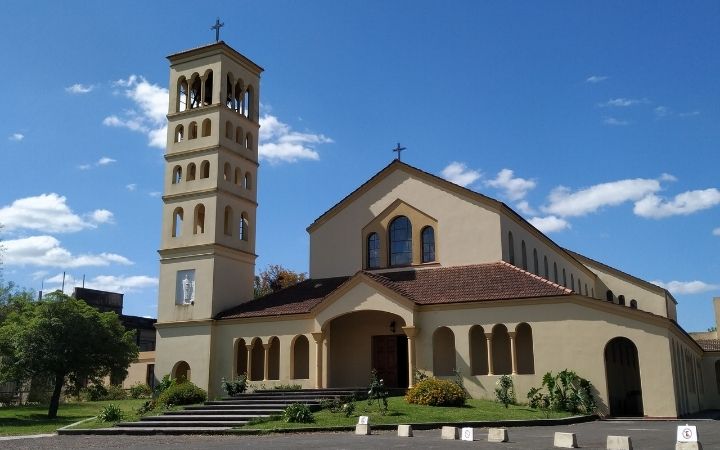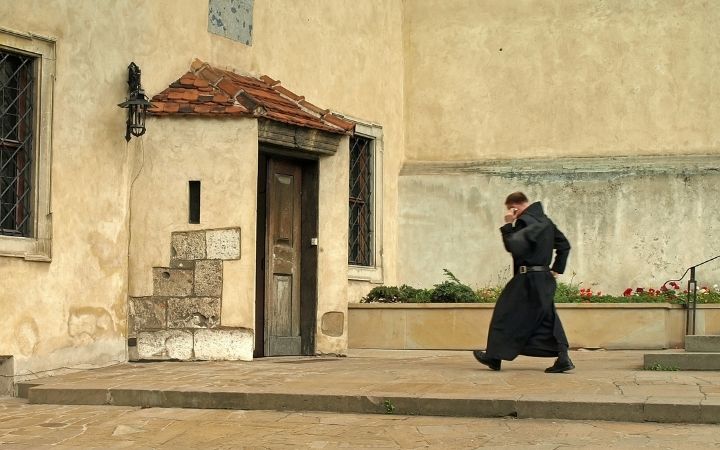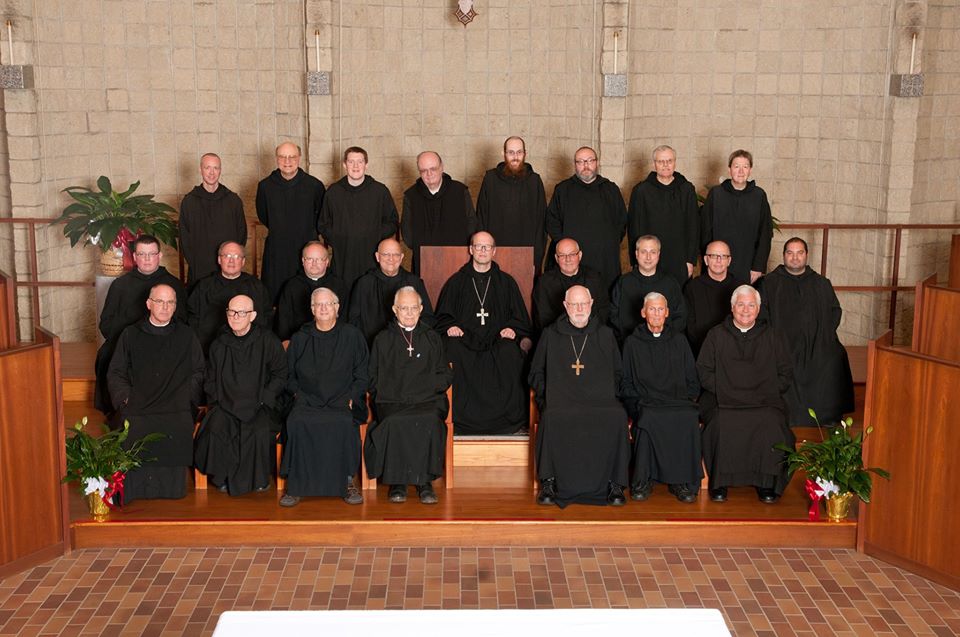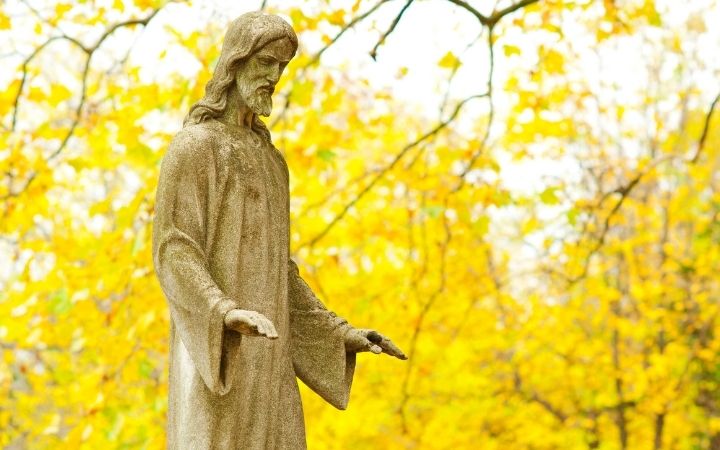The Order of Saint Benedict
In the catholic religion, there are quite a number of orders. One of them is the Benedictine Monks. The Benedictine Monks follow the rules that St. Benedict of Nursia set. St Benedict was a founder of many monasteries in Italy.
Where do Monks live? This is a question that you would like answered. Being a Benedictine monk means that you are supposed to live in a monastery. Their call is to serve others and live in prayer.
All about the Benedictines
Benedictine Monks follow the instructions of St. Benedict. St Benedict was a Christian saint and a patron saint of Europe. He was a role model to many who wanted to live the monastic life since he led with a lot of wisdom.
St. Benedict made sure that his rules were only practiced by the monasteries that he had established and not any other. Benedictines live a single life, and they also live with other monks.

They are guided by the St. Benedict rule consisting of 73 chapters that comprise administrative and spiritual wisdom. The rules guide them on how to run a monastery and how to live through Christ. They also learn to be humble and obedient.
Apart from the monastic life, the Benedictines also get involved in activities like missionary work, education, and scholarship programs.
How to Become a Benedictine Monk
In order to become a benedictine monk, you need to take the “benedictine vows.” They are promises that you will follow all the benedictine rules. Here are the rules:
- Promise of Stability-you need to vow that you are going to be committed to your monastery. That is, abide by the rules and do what is required by the monastery.
- Conversion of morals-this means that you need to live a celibate life. You also need to follow the teachings of St. Benedict.
- Obedience-you also need to vow that you will be obedient to the leader who acts as the “father” of the monastic community.
What do Benedictine Monks Wear?
The Benedictine Monks wear garments referred to as a tunic. The tunic is confined at the waist by a cloth or a belt. There is also an apron that reaches between the knees and hem of the tunic and a hood. In ceremonies, the Benedictine Monks put on a full, pleated gown that has wide sleeves. It is called a “cowl.”
During a special service at the altar, monastics wear an alb or surplice. In active monasteries, the monks are allowed to wear informal clothing during lunch hours or day hours. Some monasteries are not so strict; they only allow the monks to put on the monastic costume during liturgical services.
When it comes to color, the earliest Benedictines wore grey or white. Today, black has been the predominant color. That’s why the Benedictine Monks are also known as “Black Monks.”
To add on the clothing is the Benedictine cross.
It is worn as a powerful weapon of the St. Benedict church. The monks believe that the cross protects them from evil.
A Day in the Life of a Benedictine Monk

Just like in other professions, one has to have a program for the day. It is not any different with Benedictine Monks. A Benedictine Monk’s day begins at 3.10 a.m with the wake-up bell. They take coffee then proceed to the chapel for vigils.
They will then have the Benedictine Monk Chant that contains 14 psalms. They also read two long readings from the scriptures and the church fathers. After the communal prayer, there is a private prayer period called Lectio Divina. It is a traditional prayer done when meditating on God’s word, which is specific scriptures.
At 6.00 a.m, the Monks go back to the chapel for the office of ‘lauds,’ which is God’s morning praise. After that, a holy mass follows with the traditional Gregorian chant. They also do the Benedictine Monks of Santo Domingo de Silos Chant. Most of the offices are done in English, and most of the mass is conducted in Latin.
There is a short break that follows after mass where the monks take breakfast and perform personal duties. It is also during this time that breakfast for the B&B guests is also prepared. At 8.15 a.m, they gather in the chapter room where the Prior reads from St. Benedict’s rules and gives a commentary on the same. After that, they discuss the activities for the day.
Strengthening the Spirit
The spirit needs to be strengthened, and so, there are classes on liturgy, moral and spiritual theology, scripture, the vows, and other topics related to the monastic life. At 9.30 a.m., the monks go back to the chapel for the office of Terce.
The monks do most of the other work. The monastery does not employ workers; the monks perform duties related to cooking and cleaning done in the morning. They also tend to the gardens and keep the cloister clean.

The work period ends at 12.45 p.m. The Monks then gather for the midday office of Sext. The main meal of the day follows with table readings. Most monks prefer reading books on biography and history. The community does the dishes as others have an hour for a siesta or attend to other personal matters.
At 2.30 p.m., they pray the office of None, which is followed by classes that are either chant or languages (Greek, French, and Latin). Activities like practicing musical instruments, reading, or exercising are done in the rest of the afternoon.
Vespers
It is a solemn office that begins every day at 5.15 p.m; with a short procession. On events like significant feasts and Sundays, incense and vestments are used to mark the office’s solemnity. Vespers is followed by an optional meal called “collation.”
The monks have some personal time after the collation. Compline follows at 7.15 p.m. and ends with the great antiphon, either the Salve Regina or another antiphon varying by season.
Later on, the monks return to their cells and prepare to sleep.
Often, some reading is done by the Monks as they prepare for the next day’s classes. It is also an excellent time for the Monks to have personal prayers.
They follow a different routine on Sundays. They do not carry out manual labor. The liturgies are more solemn, and they take a longer time compared to other days. They then serve a recreational meal in the evening, and they allow the monks to visit one another.
10 Interesting Facts About Benedictine Monks

Below are ten Benedictine Monk’ facts that you need to know:
1. Love of Christ and Neighbour
Just like all Christians are required to show love, the same applies to the Benedictine Monks. Top of the list among St. Benedict’s rules is love for all humanity. Most of the collaborative practices deal directly with humanity. In the end, it is God’s love that is decisive.
2. Stability
All Benedictines’ ways of life are sharpened by stability. They are supposed to stay committed to seeking God. The monks are always looking forward to work on their strength of faith at all times (good and bad) and throughout their entire lives.
3. Hospitality
The Benedictine Monks will always see Jesus Christ present within the monastery in scripture and liturgy. The monks give special attention to guests who are regarded as strangers and poor. Just like Christ, the monks leave their personal needs to take care of the outsider.
The outsider is welcomed by the monks and made to feel at home even for a short time. The monks believe that they receive blessings for being hospitable.
4. Justice and Peace

The main objective of the benedictine life is to find peace. They set out to pursue peace. There is no way peace can be found where there is no justice.
It is for this reason that the Benedictine brotherhood tries to ensure that there is justice. They help people in the communities seek peace and learn to pursue it.
5. Obedience
Obedience is a virtue that is important in life. The root of the word obedience is “audire,” which means to listen. St. Benedict emphasized that anyone who seeks wisdom has to obey.
He asks for all the members of the community and the head of the monastery to practice obedience. For the Benedictine Monks, obedience is putting into practice what you learn by listening to others. The Benedictine Monks are always willing to submit.
6. Community
The Benedictine Monks believe that one is supposed to serve another person without expecting something in return. To do this, a monk’s character is guided by the character required by the community’s sense of its mission and communion of saints across the ages. For the Benedictine Monks to be successful in their objectives and commitments, they must stretch to worldwide prospects.
7. Conversatio
Conversatio is another interesting fact in the life of Benedictine Monks. Here, they have a lifetime commitment to participate in activities that will bring conversion to Christ’s likeness. For instance, giving their life to others like Christ did.

For this to happen, the monks have to be disciplined, resilient, and faithful. The conversation occurs gradually and is tested over a lifetime.
8. Discipline
A Benedictine Monk has to be disciplined. Discipline is a way of paying attention to what matters most. The Benedictine Monks have to be disciplined in work, prayer, and relationships with the community. They have to follow all the set rules.
When new members join the monastery, they are taught how to be disciplined. They are also made to know that being disciplined takes time or a lifetime of practice to develop the required skills.
9. Humility
Humility is an attribute that has to be present in any Benedictine Monk’s life. According to Saint Benedict, humility is a sign that monks know where God is in their lives. Humility will also make them understand that the gifts they possess belong to other people as well. You will realize that most Benedictine Monks are humble.
10. Prayer
Saint Benedict asserts that prayer cannot be compared or preferred to anything. According to him, prayer is very fundamental in the life of a Benedictine Monk. Benedictine schools insist on particular attention to be given to prayer.

According to the order of St. Benedictine, daily prayer is a must. The Benedictines support the prayer by spiritual reading that is done individually. In Latin, this practice is known as lectio divino.
It comprises reading scriptures from the bible and sacred texts. This ensures the Benedictines understand how God works in the world. The daily practice of the liturgical prayer and lectio divino enables the benedictine Monks to grow in qualities like integrity, compassion, and courage.
Summary
To sum up, you will realize that Benedictine values are also relevant in this era. Today, there are a lot of societal and personal ills that are committed.
Some ills like racism and materialism can be done away with if people embrace the Benedictine Monks’ way of life. This can be done when we love one another and live in unity.
If you enjoyed this article, please feel free to read our blog post on Saint Ursula too.

Community of passionate writers and content creators who share a love for Italian heritage, culture, travel, food, and the Italian-American community. Our mission is to celebrate Italy’s rich history and traditions and connect with others who share the same passion.

